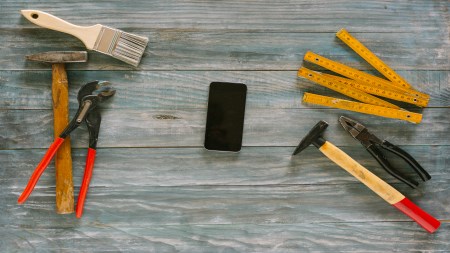Overspending on home improvements can leave you seriously out of pocket when you’re ready to sell.
It’s frighteningly easy to overcapitalise on a property and many people don’t realise their mistake until it comes time to sell and they aren’t able to recoup all the money they’ve put into a property.
For those who haven’t heard of the term or don’t understand what overcapitalising means, it basically describes a situation where the owners have spent money on improving a property that they won’t be able to get back when it comes time to sell. To give an example, a homeowner buys a home for R500 000. He puts in a new kitchen and upgrades the bathrooms to the tune of R150 000. In his mind the additions will add value to the home and he’ll be able to recoup the outlay once he sells. However, when it comes time to sell he may find that the property’s value has only increased by R100 000 and ends up losing R50 000.
Unfortunately, it’s easy to overcapitalise because of the emotions surrounding home ownership. However, as the old adage says, love is blind and because of this it’s easy to get carried away if you form an emotional bond with a property.
Read more: How to plan your home renovation
The most important thing that homeowners who are planning renovations can do is find out the average selling price of homes in the area in which they live. This is because most suburbs have a median selling price and although there may be the odd exception, most homes within that area will sell within those price boundaries. Unfortunately, it’s not that easy to gauge the average selling price without doing some research beforehand and it’s highly recommended that homeowners either call on a local estate agent for help or utilise the services of a company that keeps records on what has recently been sold for what price, such as Lightstone.
6 reasons homeowners end up overcapitalising on their home improvements:
1. Underestimating the costs involved
One of the biggest mistakes homeowners make when renovating their homes is underestimating the costs involved in the project. Everything, including professional fees for architects, the cost of drawing up new plans, contractor costs as well as the actual cost of any new fixtures and materials needs to be factored into the price of the build/renovation.
2. Choosing an unqualified builder to do the work
The choice of builder is particularly important. Only work with qualified contractors with a proven track record in the type of work that is being undertaken. Shop around for quotes and ask for references before giving the go ahead.
Read more: How to choose the right building contractor
3. Taking the DIY route
Those who undertake renovations or improvements themselves often run into difficulties resulting in shoddy workmanship and budget overruns. It’s often more cost effective to use a qualified contractor from the start instead of having to pay someone extra to fix the DIY problems. Those who decide not to fix their mistakes could end up being out of pocket when it comes time to sell. Buyers can generally spot a DIY job from a mile away and might offer a lower price knowing that it’s going to cost money to rectify the shoddy work.
Read more: 7 DIY jobs you should leave to the professionals
4. Not sticking to a budget
Anyone undertaking renovations needs to have a budget in place and stick to it. Unfortunately, it’s easy to get carried away and pay far more than originally planned. Don’t allow yourself to be swayed into thinking that spending more on the odd fixture won’t make too much difference. You’ll be amazed how quickly the ‘little’ extras add up and before you know it you’ll have overspent by thousands.
Read more: How to stick to your home renovation budget
5. Poor design
Make sure any additions match the rest of the house. Additions that are inconsistent with the theme of the home tend to stick out like a sore thumb and could lead to buyers walking away or devaluing the property.
6. Investing in the wrong things
The rule of thumb is not to spend more than a quarter of the value of your home on improvements or renovations. Remember that not every improvement is automatically going to add to the value of your home. For instance, swimming pools often don’t enhance the value in excess of what has to be spent. In many instances a low spend on improving your garden will enhance your home’s value more than an expensive addition like a pool.
Before making any home improvements, home owners should carefully consider whether they will recoup the money that they spend when they sell. Research and planning will go a long way towards avoiding spending more than you will get back.




